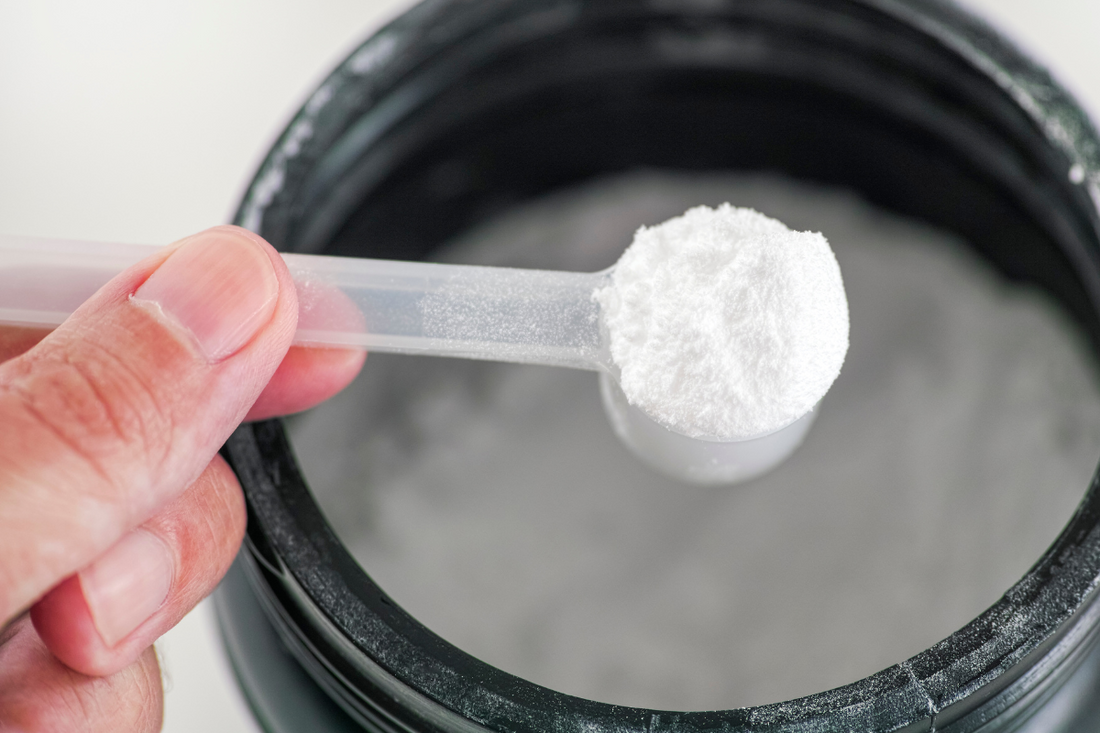
Benefits of Glutamine Supplementation: Neurotransmitters, Gut Health
Share
Glutamine is one of the most abundant amino acids in the human body, playing a vital role in numerous physiological processes. It is especially important in the central nervous system, where it serves as a precursor to several key neurotransmitters. Let’s break down what glutamine does, how it supports brain health, and the potential benefits of supplementing with it.
What Is Glutamine?
Glutamine is a conditionally essential amino acid, meaning your body can usually produce enough of it, but under stress, illness, or intense physical activity, your needs may outpace production (1). It is found in high concentrations in blood and tissues, particularly in muscles and the brain.
Glutamine as a Precursor in the Brain
In the central nervous system, glutamine serves as a crucial precursor for the synthesis of several neurotransmitters, including:
- Glutamate: The primary excitatory neurotransmitter in the brain, essential for learning, memory, and overall brain function (2).
- GABA (gamma-aminobutyric acid): The main inhibitory neurotransmitter, which helps regulate neuronal excitability and has a calming effect on the nervous system (2).
- Aspartate: Another excitatory neurotransmitter involved in synaptic transmission (3).
The Glutamine-Glutamate-GABA Cycle
Glutamine is synthesized in astrocytes (a type of glial cell) from glutamate and ammonia via the enzyme glutamine synthetase. It is then transported to neurons, where it is converted back to glutamate by phosphate-activated glutaminase. Glutamate can then be further metabolized to GABA or aspartate, supporting the synaptic pools of these neurotransmitters and maintaining proper neurotransmission (4).
Benefits of Glutamine Supplementation
1. Supports Brain Health and Neurotransmission
By serving as a precursor to glutamate and GABA, glutamine supplementation can help maintain healthy neurotransmitter levels, which are vital for cognitive function, mood regulation, and stress response (4).
2. Promotes Gut Health
Glutamine is a preferred fuel source for intestinal cells and plays a key role in maintaining the integrity of the gut lining. Supplementation has been shown to help with gut barrier function, particularly in people with gastrointestinal disorders or those under physical stress (5).
3. Enhances Immune Function
Glutamine is critical for the proliferation of immune cells, especially during times of stress or illness. Supplementation may help reduce infection risk and support recovery in critically ill or physically stressed individuals (6).
4. Aids in Muscle Recovery
Athletes often use glutamine supplements to help with muscle recovery, reduce soreness, and support immune function after intense exercise, though research results are mixed on its effectiveness for muscle growth (7).
5. May Improve Stress Response
Because glutamine is involved in neurotransmitter synthesis (especially GABA, which has calming effects), adequate glutamine levels may help buffer the brain and body against the negative effects of stress (4).
Key Takeaways
- Glutamine is a precursor to glutamate, GABA, and aspartate in the brain—all critical for healthy neurotransmission.
- Supplementing with glutamine may support brain health, gut integrity, immune function, and recovery from physical stress.
- Its benefits are especially notable during times of increased physical or psychological stress, illness, or intense exercise.
References
- National Institutes of Health. Amino Acids: MedlinePlus
- Hertz, L. (2013). The Glutamate–Glutamine (GABA) Cycle: Importance of Late Postnatal Development and Potential Reciprocal Interactions Between Biosynthesis and Degradation. Frontiers in Endocrinology, 4, 59. Link
- Zielke, H.R., & Zielke, C.L. (2007). Glutamine in the Brain: Metabolism and Function. Frontiers in Bioscience, 12, 332-343. Link
- Contextual summary: Glutamine is crucial for neurotransmitter synthesis in the CNS, supporting glutamate, GABA, and aspartate production, and thus healthy neurotransmission.
- Kim, M.H., & Kim, H. (2017). The Roles of Glutamine in the Intestine and Its Implication in Intestinal Diseases. International Journal of Molecular Sciences, 18(5), 1051. Link
- Cruzat, V., et al. (2018). Glutamine: Metabolism and Immune Function, Supplementation and Clinical Translation. Nutrients, 10(11), 1564. Link
- Gleeson, M. (2008). Dosing and efficacy of glutamine supplementation in human exercise and sport training. Journal of Nutrition, 138(10), 2045S-2049S. Link

